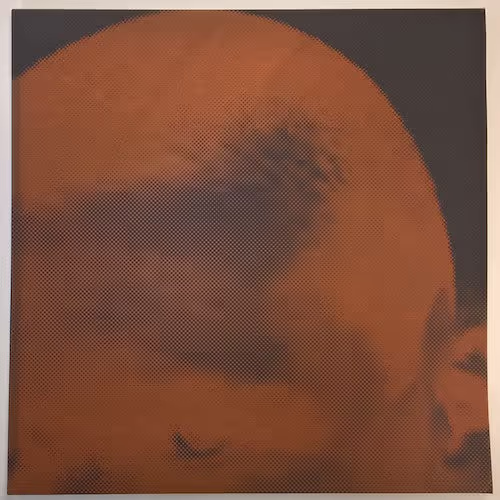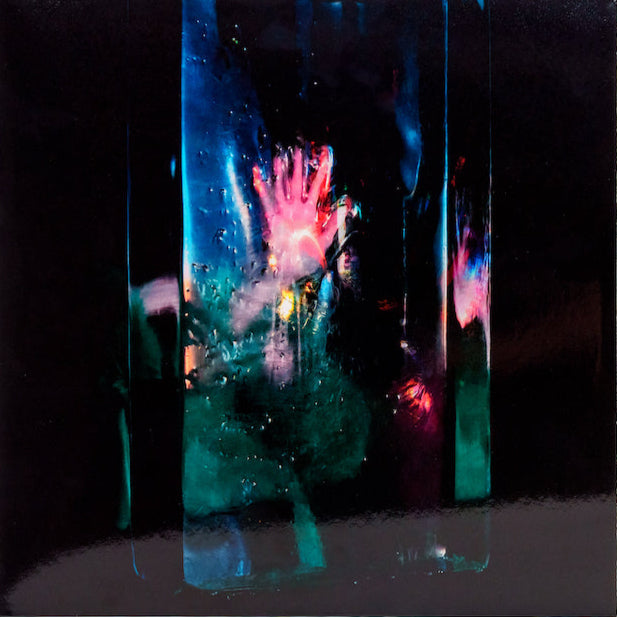
Permanent Rotation: Paramida
Permanent Rotation is a series in which producers, DJs, and musicians go deep on the albums that have inspired them.
Paramida grew up in the central German state of Hesse, but spent four of her teenage years in her mother’s native Iran. She’d attend illegal underground raves in Tehran and go clubbing in Berlin during school holidays, which provided a colourful diet of trance (then big in Iran) and the electroclash and minimal that dominated Berlin in the mid-2000s.
After moving back to Frankfurt, Paramida began her DJ career, and over the past 15 years has accumulated residencies at Robert Johnson, Panorama Bar, and BBC Radio 1, toured the world, and started her own beloved record label and party series, Love on the Rocks. Her recent Essential Mix is a dreamy expression of the Paramida sound — futuristic, psychedelic, Balearic, and highly danceable.
At 12 years old, Paramida was not a fan of dance music. She preferred punk and alternative music — bands like Smashing Pumpkins and …And You Will Know Us by the Trail of Dead, and her main impression of electronic music came from Berlin’s Love Parade, which was broadcast on German TV at the time. Fluorescent colours, candy ravers, commercial trance—she wasn’t into any of that.

But one summer, while on holiday in Toronto, she stumbled across a couple of interesting-looking CDs; Laurent Garnier’s Man With the Red Face single and Miss Kittin and the Hacker’s First Album. “I really liked it because it has a punk attitude,” she says of the duo’s debut LP. “The lyrics are very cynical, and it gave me a totally different perception of electronic music. It changed everything because then I started to dig into what’s out there.”
Electroclash turned a lot of people onto electronic music around the turn of the millennium. It was sexy, amusing and had enough new wave and punk in its DNA to prick the ears of diverse audiences. Kittin, born Caroline Hervé, then going by Miss Kittin, was the compelling face and voice of the sound—an international club presence back when women DJs were still a rarity, who also sang-spoke in an insouciant French accent.
The lyrics were intentionally ridiculous — preening about parties and champagne and limousines — but they also accurately described the increasingly rockstar lifestyle of DJs as electronic music boomed the world over.
“I’ve been reading lots of interviews [Kittin] did at that time, like twenty years ago, and she’s just so authentic and so real,” says Paramida. “1982” was her favourite track as a 12-year-old. “I really like the older ‘80s influences she mentions, songs like “Fade to Grey”, “Blue Monday”, “Tainted Love”,” she says. These days, “You and Us” — which narrativised the international DJ lifestyle long before Instagram and TikTok did the job — has taken on new meaning for Paramida.
While tracks like “Frank Sinatra” pilloried the VIP DJ lifestyle before Kittin became a hot commodity herself, they were also feminist. She might have been assuming the role of a male superstar DJ when deadpanning, “suck my dick, kiss my ass,” but uttered by a woman, the lyrics felt subversive. Meanwhile, “Stock Exchange” satirised the kind of millennium-era girlboss who was still getting her bum pinched in elevators, but was successful enough to have a private jet.
“They’re very weird lyrics, but they’re also mirroring society at that time,” says Paramida. “I think the ‘90s were the peak of capitalism in a way and then the [Berlin] Wall came down and the Love Parade started and everyone was so excited to be entering the 2000s. First Album is a critique of society, it’s political, it’s feminist, but it’s also fun. As soon as things get political, they can become serious, but she manages to do it in a very artistic way.”
Kittin did all of this while navigating the extremely male DJ scene of the late ‘90s, and contending with clubgoers who wanted her to present in a certain way. “There’s this interview she did with Acid Maria and they were talking about how people would come up to them and tell them to “look happy” when they DJ,” says Paramida. “Whereas back then they were playing vinyl, they were concentrating. No one would go up to a guy playing and tell him to smile.”
The electroclash craze might have been brief, but it was a career-defining moment for artists such as Tiga, Felix da Housecat (on whose Kittenz and Thee Glitz album Kittin featured heavily) and DJ Hell. Kittin’s prominence and success inspired and forged a path for thousands of women DJs in her wake. She never receives quite enough credit for that.
“You have to work hard as a woman,” Paramida concurs. “You have to prove yourself. I’ve been DJing for 15 years. It’s not a short time but sometimes I have male colleagues, who, bless them, they’re talented, but they get opportunities in that first year of touring that I only got after years and years.” These days few could deny Paramida the credibility and respect she has long deserved. “I feel like there’s definitely been a little turning point in my journey,” she says.
Paramida has been revisiting First Album over the past year after she noticed a lot of new music bearing the same hallmarks as vintage Kittin. Reconnecting with the album has been such a thrill, Paramida wants to ask the electroclash queen to collaborate on a new track.
“It would be such a full circle moment for me, because I’m so heavily inspired by it,” she says. “To me the lyrics feel so timeless as well. I think everyone should listen to it twenty years later to see how much it resonates.”
10 Years Love On The Rocks – Sky Is The Limit is out on Love on the Rocks on June 7th. Celebrating ten years of Paramida’s record label and party series, the compilation features tracks from Paramida, Fantastic Man & Tornado Wallace, Alex Kassian & Running Hot, Sweely and Massimiliano Pagliara.









